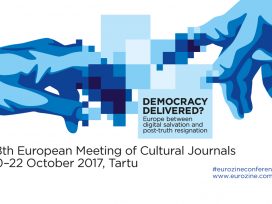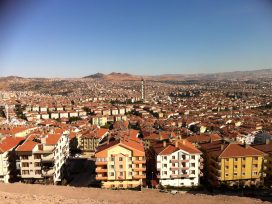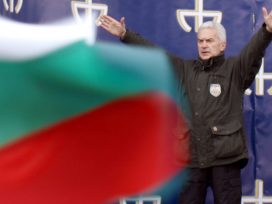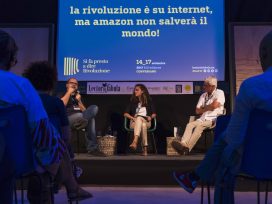86 articles

Digital technologies are increasingly seen as an antidote to the complaints of ‘post-democracy’. However, the impacts of digital media on democratic processes also need to be seen critically. Covering issues of digitization, disinformation and post-truth politics, this focal point, based on discussions that took place at the 28th European Meeting of Cultural Journals, asks whether internet technologies are saving democracy, or whether democracy is being delivered up to the forces of illiberalism.


Themes discussed at the 28th European Meeting of Cultural Journals, held in Tartu, Estonia, 20-22 October 2017.

Anton Shekhovtsov traces how pro-Kremlin forces seek to influence political processes in western democracies using local activists and politicians, and how far-right groups across Europe and the US increasingly use Russian web hosting services to spread anti-western propaganda.

After the failed coup attempt in Turkey in 2016, the AKP set about securing what Recep Tayyip Erdoğan referred to as ‘social and cultural power’. Nilgün Tutal studies processes of Islamisation in Ankara and Istanbul, showing how the political struggle in Turkey is about the imposition of a ‘legitimate’ cultural vision.

Culture has become a major instrument of Russian propaganda. Nowhere is this more so than in the Baltic countries, where Russian media are widely consumed, and where politics, business and the cultural sector combine to promote Russian interests. A Lithuanian perspective.

Russian propaganda co-opts western grassroots criticism of liberalism and globalization, recasting both left and right populism in nationalist terms. Vice versa, local actors borrow the Russian propaganda package and use it for their populist purposes. An analysis of Bulgarian media discourse 2013–2016.

How has the digital dream of the 1990s – equality, freedom of expression and accessibility for everyone – turned into the constantly surveilled dystopia that many observers comment on today? New media expert Evgeny Morozov and sociologist Colin Crouch discussed this digital dilemma at the recent Lector in Fabula festival, in conversation with journalist Marina Lalovic.

Digitalization reveals the distance between the democratic ideal and its practical reality. Only a society that is open, sceptical and flexible can adapt successfully to this transformation, writes Manuel Arias Maldonado.
From dialectical materialism to neoliberalism, any politics that lays claims to the truth is both illusory and dangerous. But does this mean that democracy is simply rule by opinion, without recourse to facts? And does the rejection of absolute relativism mean abandoning the postmodernist critique of truth and power?
The nationalist reaction to the refugee crisis of 2015 casts a shadow over the opening of the House of European History in Brussels. Will the new institution’s role be merely to display the vestiges of a common European cultural heritage?



